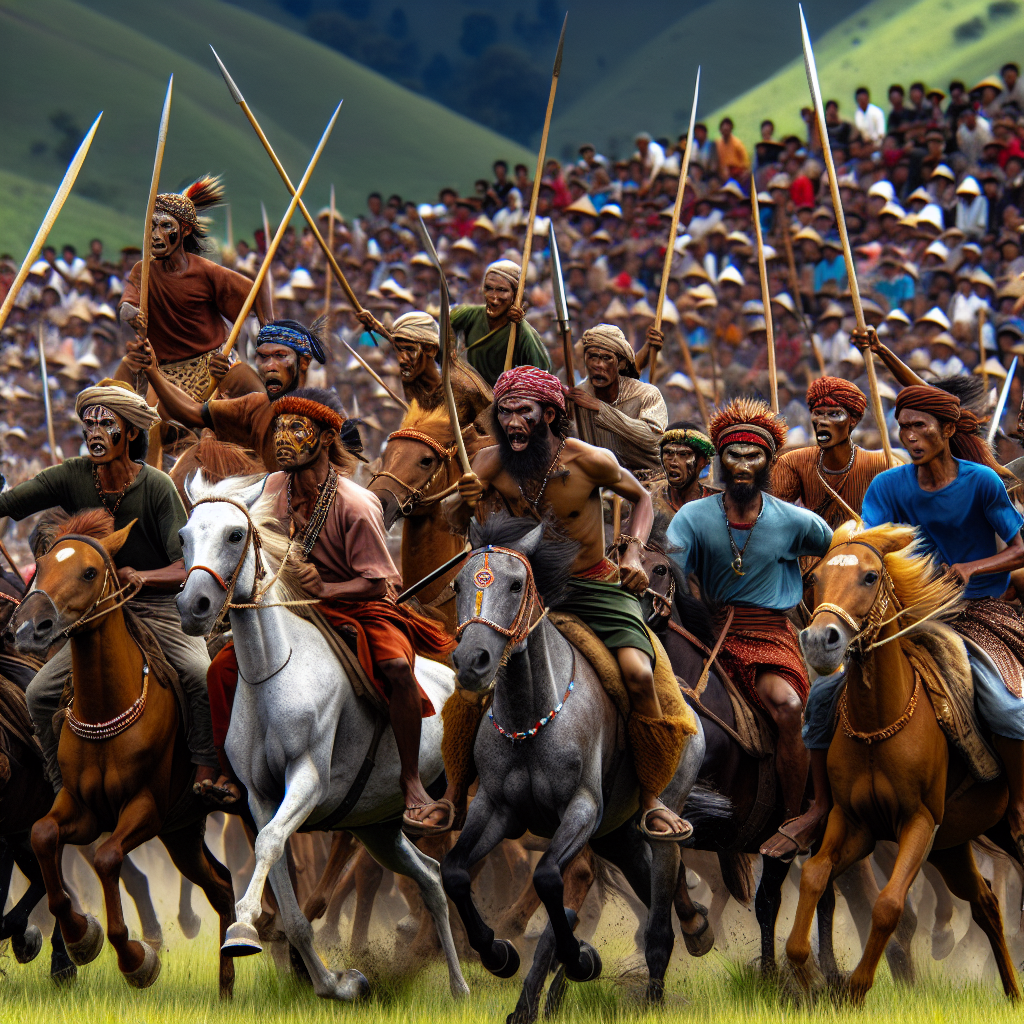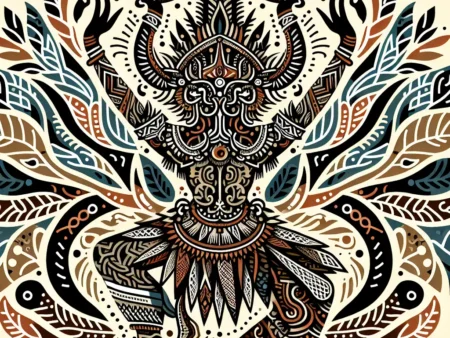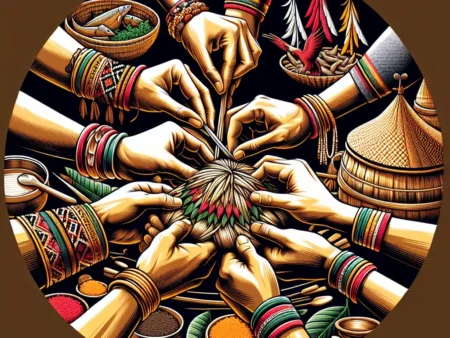Tradisi Pasola di Sumba: Pertarungan berkuda sakral yang memadukan keberanian, keahlian, dan spiritualitas dalam budaya Sumba.
Tradisi Pasola di Sumba: Pertarungan Berkuda yang Sakral
-
Table of Contents
Introduction

Indonesia is a country rich in cultural traditions and rituals, each with its own unique significance and charm. One such tradition that stands out is the Pasola festival in Sumba, an island located in eastern Indonesia. Pasola is a sacred horseback fighting ritual that has been practiced by the Sumbanese people for centuries. This article explores the origins, significance, and cultural impact of the Pasola festival, shedding light on this fascinating tradition.
The Origins of Pasola
The Pasola festival traces its roots back to the ancient Marapu religion, which is still practiced by the Sumbanese people today. Marapu is a belief system that revolves around the worship of ancestral spirits and the forces of nature. Pasola, which means “war” or “fight” in the local language, is believed to have originated as a way to appease the spirits and ensure a bountiful harvest.
According to legend, the first Pasola was initiated by a warrior named Nggahi Rawi, who was believed to possess supernatural powers. He would ride his horse into battle, throwing wooden spears at his opponents. The blood spilled during these battles was believed to fertilize the land and bring prosperity to the community.
The Ritual of Pasola
The Pasola festival takes place annually in February or March, coinciding with the arrival of Nyale, a type of sea worm that is considered a sacred symbol of fertility. The festival is divided into two parts: the Pasola Adat and the Pasola Rato.
Pasola Adat
The Pasola Adat is the first phase of the festival and involves a series of rituals and ceremonies. The Sumbanese people dress in traditional attire and gather at the village’s sacred grounds. The village elders perform prayers and offerings to the spirits, seeking their blessings for a successful Pasola. The participants then engage in traditional dances and music, creating a vibrant and festive atmosphere.
Pasola Rato
The Pasola Rato is the main event of the festival and is characterized by the horseback fighting ritual. The participants, known as “jockeys,” ride on horseback, armed with wooden spears. They divide into two teams and charge at each other, throwing their spears with great force. The objective is not to harm or injure the opponents but to spill blood on the ground, symbolizing the offering to the spirits.
The Pasola Rato is a highly intense and dangerous event, with jockeys often sustaining injuries. However, the Sumbanese people believe that these injuries are a testament to the bravery and dedication of the participants. It is believed that the more blood is spilled, the more prosperous the harvest will be.
The Significance of Pasola
Pasola holds immense cultural and spiritual significance for the Sumbanese people. It is not merely a sporting event but a sacred ritual that connects them to their ancestors and the spiritual realm. The festival is seen as a way to maintain the balance between the physical and spiritual worlds, ensuring the well-being of the community.
Furthermore, Pasola serves as a platform for social cohesion and unity. The festival brings together people from different villages and tribes, fostering a sense of camaraderie and shared identity. It is also an occasion for young men to showcase their bravery and skills, earning respect and admiration from their community.
The Cultural Impact of Pasola
Over the years, Pasola has gained recognition beyond the borders of Sumba and has become a major tourist attraction. Travelers from around the world flock to the island to witness this unique and thrilling spectacle. The festival has not only boosted tourism in the region but has also contributed to the preservation of Sumbanese culture and traditions.
However, the increasing popularity of Pasola has also raised concerns about its commercialization and potential loss of authenticity. Efforts are being made to strike a balance between promoting tourism and preserving the sacredness of the ritual. Local authorities and communities are working together to ensure that Pasola remains a genuine expression of Sumbanese culture.
Conclusion
The Pasola festival in Sumba is a testament to the rich cultural heritage of Indonesia. This sacred horseback fighting ritual not only connects the Sumbanese people to their ancestors and spiritual beliefs but also serves as a symbol of unity and identity. The festival’s cultural impact extends beyond the island, attracting tourists and raising awareness about the unique traditions of Sumba. As Pasola continues to evolve, it is crucial to strike a balance between preserving its authenticity and embracing its growing popularity. The Pasola festival stands as a shining example of the beauty and diversity of Indonesian culture.







